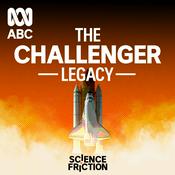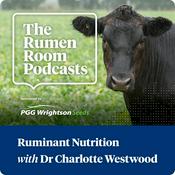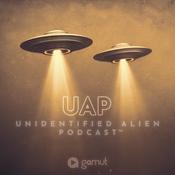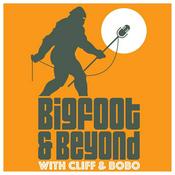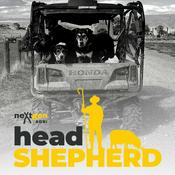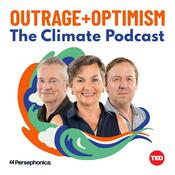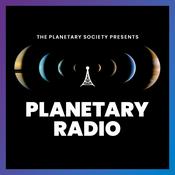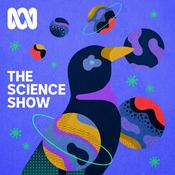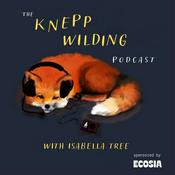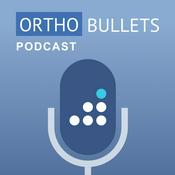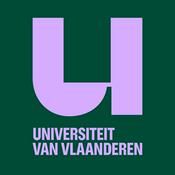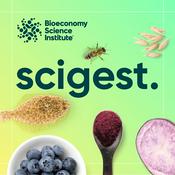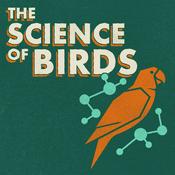35 episodes
- I’m willing to bet that most of our listeners - like us - have traditionally seen acorns as food for squirrels, not people. But as Elspeth Hay points out in this conversation, that assumption says more about our food system than it does about the acorn.
For much of human history, acorns were a staple. They fed communities across North America, Europe, North Africa, and Asia - and in some cases - still do. They were managed, processed, stored, and celebrated. So how did we go from acorns as everyday food to acorns as woodland debris? In her fantastic book Feed Us with Trees, Elspeth traces how enclosure, industrial agriculture, and a narrow definition of “real farming” pushed perennial forest foods to the margins of our imagination.
In this episode, we dive into:
• Why acorns were once reliable staple crops, not novelty ingredients
• The myth that we can only feed ourselves with annual row crops
• How the loss of commons reshaped our relationship to forests and food
• What Indigenous land management, including fire, meant for food abundance
• The false divide between farming and foraging
• How pigs, oaks, and people once formed integrated food systems
• What it would take to bring acorns and other perennial tree foods back into our diets
More about Elspeth:
Elspeth Hay is the creator and host of the Local Food Report, a weekly feature that has aired on the Cape and Islands NPR station since 2008, and the author of Feed Us with Trees: Nuts and the Future of Food.
Deeply immersed in her own local-food system, she writes and reports for print, radio, and online media with a focus on food and the environment. You can learn more about her work at elspethhay.com.
Agrarian Futures is produced by Alexandre Miller, who also wrote our theme song. This episode was edited by Drew O’Doherty. Could Leather Be the Missing Piece for Regenerative Ranching? with Cate Havstad of Range Revolution
03/2/2026 | 35 mins.We’ve spent a lot of time on this show digging into the dire state of modern farming and ranching, and the challenging economics for those trying to build a regenerative future. Our guest today, Cate Havstad, is no stranger to these challenges as a first-generation farmer and rancher. That experience led directly to an innovative solution that could be an important missing piece in this economic puzzle.
As she explains, only about 65 percent of the cattle she sent out to slaughter was actually used, leaving hides and other materials treated as low-value byproducts rather than essential parts of a living system. That waste isn’t just ecological. It’s economic, and it puts real pressure on ranchers trying to do things the right way.
Cate is changing that. As the founder of Range Revolution, she’s building a new market for regenerative hides, turning them into high-quality leather goods while creating an additional revenue stream for ranchers committed to land stewardship. Her work challenges the idea that sustainability and luxury are incompatible, and shows how value-added products can help make regenerative ranching financially viable.
In this episode, we dive into:
• Why hides have been devalued in the modern meat system
• How waste in the supply chain undermines regenerative ranchers
• What it takes to build a leather supply chain aligned with land health
• Why luxury markets can play a role in regenerative economics
• The hidden costs of conventional leather production
• How whole-animal utilization strengthens rural livelihoods
• What a more honest pricing of materials could unlock for agriculture
More about Cate and Range Revolution:
Cate Havstad-Casad is a first-generation farmer/rancher, designer, systems-thinker and agricultural advocate.
At the age of 23 Cate founded Havstad Hat Company and began her career as a designer and maker. She has crafted hats for Post Malone, Shania Twain, Kacey Musgraves among other notable pop-culture icons.
Cate began farming with her husband in 2014, both first generation farmers. Starting on 5 acres of leased land, Cate and her husband now manage 1400 acres of farmland & rangeland at Casad Family Farms in Madras, Oregon. This work on the ranch and in building markets for regenerative meats informed the launch of Range Revolution in 2021; a category-defining regenerative leather goods company which is building 100% of its products out of traceable American cattle hides coming from verifiably regenerative ranches. Range Revolution addresses the 5 million cattle hides that are thrown into the trash each year, rebuilding systems for whole-carcass utilization, increasing margins for processors and producers, and harnessing brand building to tell stories that reconnect citizens to natural fibers and regional supply chains. Range Revolution offers both a collection of finished goods as well as B2B material development.
Cate believes deeply in building businesses that support regional, decentralized systems for agriculture of the middle to thrive, and that human health and ecosystem health are one in the same.
Agrarian Futures is produced by Alexandre Miller, who also wrote our theme song. This episode was edited by Drew O’Doherty.- Joel Salatin is one of the most influential voices in the modern regenerative farming movement. As the founder of Polyface Farm in Virginia, he’s become known for building a radically different model of agriculture, one rooted in ecological systems, local markets, and a refusal to accept industrial “efficiency” as the end goal.
In this episode, Joel shares what he’s learned from decades of farming and advocacy, why the middle of the food system is where so many good farms get stuck, and what it will take to move regenerative agriculture to the center of our food system.
In this episode, we dive into:
• Why the industrial food system prioritizes scale and uniformity over real stewardship
• What we lose when farming becomes a commodity business instead of a community livelihood
• The biggest barriers that keep good farms from reaching more people
• Why local processing and local markets matter more than most people realize
• How Polyface built an alternative model that actually works economically
• What it would take for regenerative agriculture to become “normal” again
• Why Joel thinks the story we tell about food is just as important as the practices
• Where he sees real hope, and what he thinks we need to stop pretending will fix things
More about Joel:
Joel Salatin co-owns, with his family, Polyface Farm in Swoope, Virginia. Featured in the New York Times bestseller Omnivore’s Dilemma and award-winning documentary Food Inc., the farm services more than 5,000 families, 10 restaurants, and 5 retail outlets with salad bar beef, pigaerator pork, pastured poultry, and forestry products. The farm ships nationwide to your doorstep.
Salatin is the editor of The Stockman Grass Farmer, granddaddy catalyst for the grass farming movement. He writes the “Confessions of a Steward” column for Plain Values magazine, the “Homestead Abundance” column for Homestead Living magazine, columns for Homesteaders of America, and a column a month for the e-magazine Manward. His blog is Musings from the Lunatic Farmer and he co-hosts a podcast titled BEYOND LABELS with co-author Dr. Sina McCullough.
Agrarian Futures is produced by Alexandre Miller, who also wrote our theme song. This episode was edited by Drew O’Doherty. - Fish have long been one of the last wild foods, a source of nourishment that connects us to the powerful ecology of the planet’s waters. But as journalist and author Paul Greenberg chronicles in his award-winning book Four Fish: The Future of the Last Wild Food, our relationship with the sea has dramatically changed over the past century. Once nearly all of the seafood we ate was wild; today, nearly half is farmed and the pressures on both wild and farmed systems are intensifying.
In this conversation, Paul doesn’t simply lament loss nor offer blind optimism. Instead, he helps us see where wild fisheries and aquaculture have faltered, where they remain strong, and how our choices today will shape the future of seafood and the oceans that feed us. Viewed through the lens of regenerative agriculture, his insights show that healthy waters and healthy land are part of the same story, and that ecological regeneration on farms must be paired with thoughtful stewardship of our rivers, estuaries, and oceans.
In this episode, we get into:
• What history teaches us about the human-ocean relationship and how it changed as we tamed the sea
• How modern fishing and seafood production mirror some of the same challenges in industrial agriculture
• Why some wild fisheries can still be models of careful management
• Where aquaculture offers real promise and where it deepens existing problems
• How ecological health, species diversity, and regional systems are essential for both land and sea
• What eating fish in ways that support long-term abundance actually looks like
• Why regenerative principles belong in discussions about oceans as much as soil
More about Paul:
Paul writes at the intersection of the environment and technology, seeking to help his readers find emotional and ecological balance with their planet. He is the author of seven books including the New York Times bestseller Four Fish: The Future of the Last Wild Food. His other books are The Climate Diet, Goodbye Phone, Hello World, The Omega Principle, American Catch, A Third Term and the novel, Leaving Katya.
Paul’s writing on oceans, climate change, health, technology, and the environment appears regularly in The New York Times and many other publications. He’s the recipient of a James Beard Award for Writing and Literature, a Pew Fellowship in Marine Conservation, a National Endowment for the Arts Literature Fellowship and many other grants and awards.
A frequent guest on national television and radio including Fresh Air with Terry Gross and the co-creator of the podcast Fish Talk, Paul also works in film, television and documentary. His PBS Frontline documentary The Fish on My Plate was among the most viewed Frontline films of the 2017 season and his TED Talk has reached over 1.5 million viewers to date. He has lectured widely at institutions around the world ranging from Harvard to Google to the United States Senate. A graduate in Russian Studies from Brown University, Paul speaks Russian and French. He currently teaches within New York University’s Animals Studies program and lives at Ground Zero in Manhattan where he maintains a family and a terrace garden and produces, to his knowledge, the only wine grown south of 14th Street.
Agrarian Futures is produced by Alexandre Miller, who also wrote our theme song. This episode was edited by Drew O’Doherty. - If you want to understand what it takes to build a healthier local food system and bring rural communities back to life, you talk to someone who’s actually done it. Bob Quinn has spent decades farming in Montana, rebuilding soil, creating local markets, and pushing back against the idea that small towns and small farms are destined to disappear.
Through his farm and the Quinn Institute, Bob is exploring what a healthier rural economy - and a healthier food system - could look like. That includes everything from improving soil health and growing better food to rethinking how we organize our communities, our businesses, and even our underlying values.
In this episode, we get into:
• Why rebuilding rural America starts with rebuilding soil
• How regenerative practices can revive both land and local economies
• What we’ve lost as rural communities hollow out
• The mission behind the Quinn Institute and why Bob created it
• Why scale isn’t the only measure of agricultural success
• How local markets, local relationships, and local identity shape rural futures
• The deeper cultural values we need to restore if regeneration is going to last
More about Bob and the Quinn Institute:
Bob Quinn's roots run deep into the rich soil of Big Sandy, Montana, where he returned after earning a PhD in plant biochemistry from UC Davis to apply his scientific knowledge to the family farm. From his return in 1978, Bob embarked on a transformative journey that led him to convert his entire farm of over 3000 acres to a regenerative organic system in just three years, from 1986 to 1988. At the same time he pioneered Kamut International, a thriving business that turned an ancient grain into a global superfood synonymous with health and community.
Agrarian Futures is produced by Alexandre Miller, who also wrote our theme song. This episode was edited by Drew O’Doherty.
More Science podcasts
Trending Science podcasts
About Agrarian Futures
Join hosts Emma Ractliffe and Austin Unruh as they explore what’s broken in our food system, and what it looks like to build something better.Visit agrarianfuturespod.com to join our email list for a heads up on upcoming episodes and bonus content.Agrarian Futures is produced by Alexandre Miller, who also wrote our theme song.Instagram: @agrarianfuturespodTwitter: @agrarianfuturesLinkedIn: https://www.linkedin.com/company/103857304/
Podcast websiteListen to Agrarian Futures, Curious Cases and many other podcasts from around the world with the radio.net app
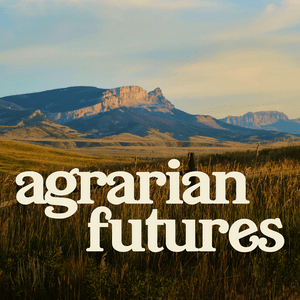
Get the free radio.net app
- Stations and podcasts to bookmark
- Stream via Wi-Fi or Bluetooth
- Supports Carplay & Android Auto
- Many other app features
Get the free radio.net app
- Stations and podcasts to bookmark
- Stream via Wi-Fi or Bluetooth
- Supports Carplay & Android Auto
- Many other app features


Agrarian Futures
Scan code,
download the app,
start listening.
download the app,
start listening.







